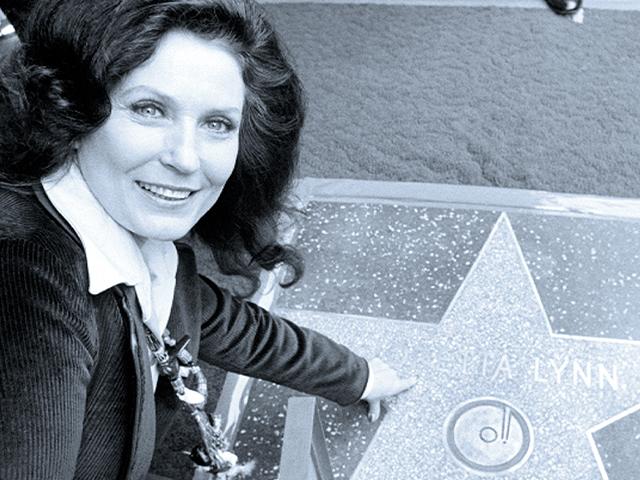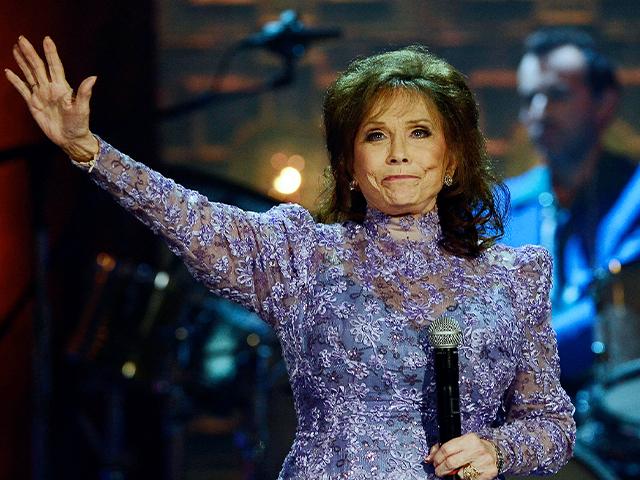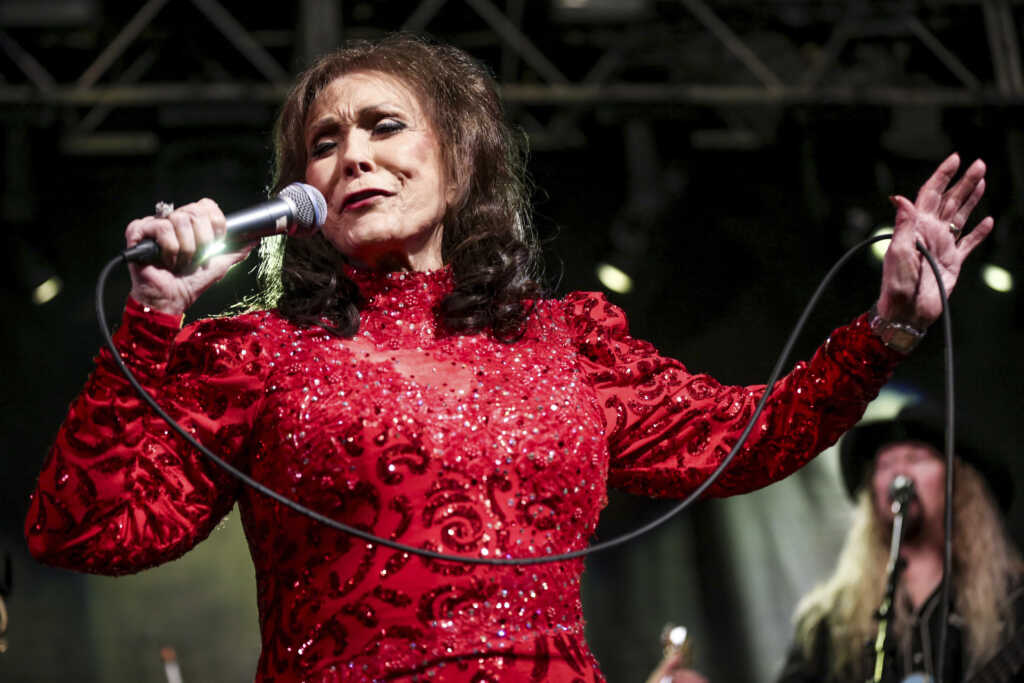Country music icon Loretta Lynn who was famous for her song “Coal Miner’s Daughter,” has died. She was 90.
The Kentucky-raised songbird built her career on frank songs about life and love as a woman in Appalachia, finally escaping poverty by becoming a pillar of the Country music world.
Lynn’s family revealed that she died Tuesday at her home in Hurricane Mills, Tennessee.
Listen to the latest episode of CBN’s Quick Start podcast 👇
“Our precious mom, Loretta Lynn, passed away peacefully this morning, October 4th, in her sleep at home in her beloved ranch in Hurricane Mills,” the family said in a statement. They asked for privacy as they grieve and said a memorial will be announced later.
In an Instagram post back in April of this year, Lynn shared a short message with her 295,000 followers about what her Christian faith meant to her at Easter. In that video message, the Country star explained how “The Third Man” was her favorite Gospel song.
“When I think about Easter I think about the incredible beauty of real love. Love that gives when it doesn’t have to. Love that gives even when it doesn’t receive. It’s what Christ did for us. I think of hope and redemption and forgiveness. There aren’t words to share how thankful I am for all God has done for me. “The Third Man” has always been my very favorite gospel song. Happy Easter,” Lynn wrote.
The last post to her Instagram account on Sunday was a graphic containing a scripture from the Bible’s New Testament.
“But those who do what is right come to the light so others can see that they are doing what God wants.” — John 3: 21.
“Everyone who does evil hates the light, and will not come into the light for fear that their deeds will be exposed. But whoever lives by the truth comes into the light, so that it may be seen plainly that what they have done has been done in the sight of God. John 3:20-21,” the singer wrote.
Loretta and her husband “Doo” were married nearly 50 years before he died in 1996. They had six children: Betty, Jack, Ernest, and Clara, and then twins Patsy and Peggy. She had 17 grandchildren and four step-grandchildren.
A Lifetime Filled with Music About Her Kentucky Home
Lynn already had four children before launching her career in the early 1960s, and her songs reflected her pride in her rural Kentucky background.
“To make it in this business, you either have to be first, great or different,” Lynn said. “And I was the first to ever go into Nashville, singin’ it like the women lived it.”
This year marked the 62nd anniversary of Loretta’s arrival on the music scene with her 1960 debut single, “I’m a Honky Tonk Girl.”
Almost on the exact date of her golden anniversary in show business, the Recording Academy gave her its Lifetime Achievement Award. The honor was presented in Los Angeles on January 31, 2010. Loretta Lynn had signed her first recording contract on February 1, 1960.
In addition to being “first,” she was also “great” and “different.” Loretta’s instantly recognizable delivery is one of the greatest Country music voices in history. As for “different,” no songwriter has a more distinctive body of work. In lyrics such as “Don’t Come Home A-Drinkin'” and “Your Squaw Is on the War Path,” she refused to be any man’s doormat. She showed tremendous blue-collar pride in “Coal Miner’s Daughter” and “You’re Lookin’ at Country.” She was unafraid of controversy, whether the topic was divorce (“Rated X”), alcohol (“Wouldn’t It Be Great”), war (“Dear Uncle Sam”), or “The Pill,” which were among some of her songs to be banned by many radio stations.
As millions who read her 1976 autobiography or saw its Oscar-winning 1980 film treatment are aware, Loretta was a Coal Miner’s Daughter who was raised in dire poverty in a remote Appalachian Kentucky hamlet. Living in a mountain cabin with seven brothers and sisters, she was surrounded by music as a child.
“I thought everybody sang, because everybody up there in Butcher Holler did,” she recalls. “Everybody in my family sang. So I really didn’t understand until I left Butcher Holler that there were some people who couldn’t. And it was kind of a shock.”
She famously married Oliver “Doolittle” Lynn when she was a barely schooled child. She said the marriage took place when she was 13, but state records indicate she was 15. “Doo” was a 21-year-old war veteran with a reputation as a troublemaker. When she was seven months pregnant with her first child, they moved far away from Appalachia to Custer, Washington. Before long, she had four children (two more, twins, came along in 1964). Isolated from her native culture and burdened with domestic work, she turned to music for solace.
“Before I was singing, I cleaned house; I took in laundry; I picked berries. I worked seven days a week. I was a housewife and mother for 15 years before I was an entertainer. And it wasn’t like being a housewife today. It was doing hand laundry on a board and cooking on an old coal stove. I grew a garden and canned what I grew. That’s what’s real. I know how to survive.”
Doo heard her singing at her chores and declared that she sounded just as good as anyone he heard on the radio. He bought her a guitar and told her to learn how to play it and write songs with it. Loretta says her songs were so forthright because she didn’t know any better.
“After he got me the guitar, I went out and bought a Country Song Roundup. I looked at the songs in there and thought, ‘Well, this ain’t nothing. Anybody can do this.’ I just wrote about things that happened. I was writing about things that nobody talked about in public, and I didn’t realize that they didn’t. I was having babies and staying at home. I was writing about life. That’s why I had songs banned.”

Doo began pushing her to perform in area nightclubs. Executives from Zero Records heard her in a nightspot across the border in Vancouver, Canada. She soon recorded her debut single, “I’m a Honky Tonk Girl,” for the little label. Loretta made herself a fringed cowgirl outfit, and she and Doo drove across the country in his old Mercury sedan promoting the single at station after station.
Astonishingly, it worked. The disc hit the popularity charts in the summer of 1960, and by the time the couple made Nashville their full-time home in the fall of 1961, Loretta was singing regularly at the Grand Ole Opry. The show’s Wilburn Brothers took her under their wings. Teddy Wilburn helped to polish Loretta’s startlingly original songwriting style. Brother Doyle Wilburn took a tape of her singing “Fool #1” to producer Owen Bradley at Decca Records.
Owen liked the song, but was already working with Kitty Wells, Goldie Hill, Brenda Lee, and Patsy Cline and said he didn’t need another female singer. Teddy told him that he couldn’t have the song if he didn’t sign its singer. As a result, Brenda had a smash pop hit with “Fool #1,” and Loretta got a Decca Records contract.
Like everyone else who encountered her, Owen Bradley was smitten with Loretta’s innocence, individualism, infectious wit, independent spirit, humorous candor, refreshing frankness, and immense talent. In fact, he came to regard her as “the female Hank Williams.”
Loretta’s Decca chart debut came with 1962’s “Success.” It became the first of her 51 top-10 hits and led to an invitation to join the Grand Ole Opry cast later that year. Her fellow Opry cast member Patsy Cline taught her how to dress, style her hair, and wear make-up. The Wilburns began featuring her on their nationally syndicated TV series.
She sang a series of sassy domestic ditties with her childhood hero, Ernest Tubb. As a solo, she hit her stride with “Wine, Women and Song” (1964) and “Happy Birthday” (1965), both of them feisty, don’t-step-on-me numbers.
“Most of my songs were from the women’s point of view,” Loretta wrote in her best-selling autobiography. “That’s who I’m singing about and singing to during my shows. And the girls know it….Most of my fan club is women, which is how I want it.”
Among Loretta’s finest moments on disc are such empowering female statements as “You Wanna Give Me Lift” (1970), “I Wanna Be Free” (1971), “We’ve Come a Long Way Baby” (1978), “Hey Loretta” (1973), “Love Is the Foundation” (1973), and the hilarious “One’s on the Way” (1972). She memorably romanced and sassed Conway Twitty in a number of hugely popular duet performances in 1970-1982.
In 1967, she began picking up various Female Vocalist of the Year trophies. She and Conway also won a long string of Duet of the Year awards beginning in 1971. The industry showered her with BMI songwriting honors, Gold record plaques, a Grammy Award and other accolades. In 1972, she became the first woman in history to win the Country Music Association’s Entertainer of the Year trophy.
Loretta continued to dominate the charts as the ’70s drew to a close, scoring more major hits with controversial titles.
Two years after she was inducted into the Nashville Songwriters Hall of Fame in 1983, Lynn was back on the charts with the hit, “Heart Don’t Do This to Me.” In 1988, the year she entered the Country Music Hall of Fame, Loretta recorded with k.d. lang. She earned a Gold record in 1994 with Honky Tonk Angels, a trio CD with Dolly Parton and Tammy Wynette.
Doo died in 1996. Numb with grief, Loretta admits that she was lost in a fog for more than a year. But she came back again with a 2000 CD titled Still Country. She also returned to the concert trail.

“It’s a good thing, too,” she says. “Because if I hadn’t, I would have been nuts by now. I would have been completely nuts.”
Loretta published a second memoir, Still Woman Enough, in 2002. She was honored at the Kennedy Center in 2003, yet pushed forward again the following year by winning two Grammy Awards for Van Lear Rose, a collaboration with rocker Jack White. Also in 2004, she published a book of recipes and anecdotes titled You’re Cookin’ It Country.
She was inducted into the national Songwriters Hall of Fame in New York in 2008. And in 2013, she received the Presidential Medal of Freedom, the nation’s highest honor presented to civilians.
Even into her later years, Lynn never seemed to stop writing, scoring a multi-album deal in 2014 with Legacy Records, a division of Sony Music Entertainment. In 2017, she suffered a stroke that forced her to postpone her shows.
“I ain’t a star – a star is something up in the night sky,” Loretta Lynn once said. “People say to me, ‘You’re a legend.’ I’m not a legend. I’m just a woman.”
***As the number of voices facing big-tech censorship continues to grow, please sign up for Faithwire’s daily newsletter and download the CBN News app, developed by our parent company, to stay up-to-date with the latest news from a distinctly Christian perspective.***



